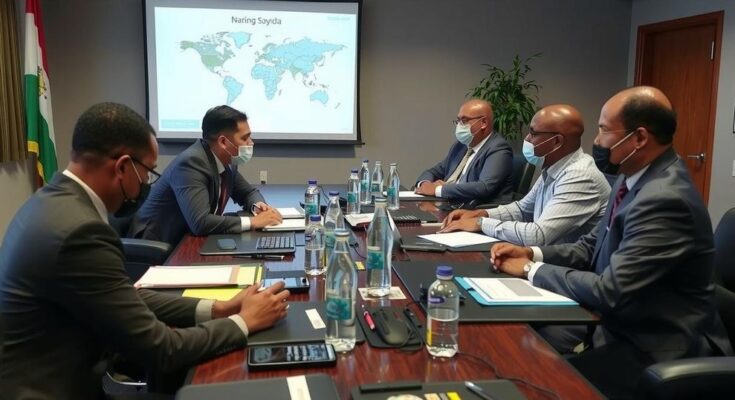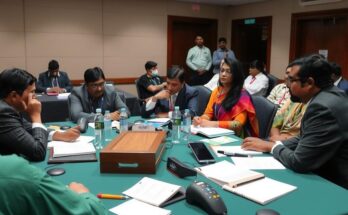The U.S. Geological Survey (USGS) conducted a visit to Namibia and Botswana from September 10 to 27, 2024, to address water security challenges under the U.S. Ambassador’s Water Experts Program. The discussions involved enhancing water resource management through remote sensing and hydrologic monitoring, amid the severe drought affecting the semi-arid climates of both countries.
In a notable initiative to address pressing water security challenges, the United States Geological Survey (USGS) recently visited Namibia and Botswana from September 10 to September 27, 2024, as part of the U.S. Ambassador’s Water Experts Program (AWEP). This program operates under the aegis of the Department of Interior International Technical Assistance Program (DOI ITAP), receiving funding from the U.S. State Department’s Bureau of Oceans and International Environmental and Scientific Affairs (OES). During their visit, USGS officials, including John Lane, the Office of International Programs’ Science Advisor for International Water, and Molly Wood, Chief of the Hydrologic Networks Branch, engaged with a diverse array of stakeholders in the water sector. Their discussions encompassed representatives from government ministries, bulk water suppliers, municipal utility operators, multinational water commissions, and private consultants, as well as U.S. Embassy personnel. Given the semi-arid to arid climates of Namibia and Botswana, exacerbated by severe drought conditions, the demand for water resources has significantly increased. Current supplies are under acute stress, affecting drinking water, livestock, mining, and industrial needs. In light of these challenges, the Namibian and Botswanan governments are actively seeking technical support to enhance their understanding and effective utilization of available water resources. The dialogue focused on several key areas where USGS can provide support, including: 1. Leveraging remote sensing datasets to better understand water availability; 2. Enhancing hydrologic monitoring networks to facilitate access to critical hydrologic data for informed water resource management; 3. Collaboratively developing scientific strategies for the improved management of groundwater and surface water resources in response to ongoing drought conditions.
The U.S. Ambassador’s Water Experts Program (AWEP) is a strategic initiative aimed at addressing global water security issues through collaborative partnerships. It emphasizes the importance of scientific expertise in mitigating the challenges posed by water scarcity, particularly in semi-arid regions such as Namibia and Botswana, where climate conditions have led to severe drought. The visit by USGS officials underscores the growing urgency of water resource management in these areas, where ecosystems and livelihoods are increasingly at risk.
In conclusion, the USGS’s engagement with Namibia and Botswana highlights a proactive approach to addressing urgent water security challenges through expert collaboration and support. By leveraging advanced technologies and enhancing data access, these efforts aim to empower local agencies to manage water resources more effectively in the face of ongoing drought conditions, ultimately contributing to sustainable water resource management in the region.
Original Source: www.usgs.gov




